The saying: "The first day of Tet is for fathers, the second day of Tet is for mothers, the third day of Tet is for teachers" is considered a common saying of Vietnamese people every time Tet comes. It contains the meaning of dividing the days of Tet visits of families in order to wish to reunite with parents, showing filial piety, remembering the source of drinking water.
According to Professor Ngo Duc Thinh - former Director of the Institute of Vietnamese Cultural Studies: the word "Tet" in the above idiom is a shortened form of the verb "chúc Tết". Wishing Tet to parents and teachers has become a moral that everyone must complete before entering the New Year's festivities.
According to many folklore researchers, old books only recorded "the first day of Tet is for the father, the third day of Tet is for the teacher", without the part "the second day of Tet is for the mother". The sentence with all three parts is a new folk saying, arising from the way proverbs are structured in the style of following, following, and lengthening to rhyme.
"The first day of Tet is for fathers, the second day of Tet is for mothers, the third day of Tet is for teachers" to show the Vietnamese tradition of "respecting teachers" and "remembering the source of water when drinking"
Besides, Dr. Nguyen Hung Vi - former lecturer at Hanoi National University, also explained the custom of going to Tet on the three days of Tet of Vietnamese people: old books only wrote "The first day of Tet is for the father, the third day of Tet is for the teacher. The oldest book that can still read this sentence is Nam am su loai, a Han Nom book, compiled by Vu Cong Thanh and prefaced in 1925.
Later, a former scholar, Mr. Tran Duy Von, when writing the book Cau cua mang, also wrote the same thing. Although the book he wrote was published late (in 1999), the manuscript had existed long before that. The books collected later also only wrote that the first day of Tet is for the father, the third day of Tet is for the teacher, but there is no section about the second day of Tet is for the mother.
Why is that? There are two possibilities: First, grandfathers and grandmothers, fathers and mothers often live together, so why is it that grandfather's Tet is not grandmother's Tet, father's Tet is not mother's Tet. Research books on etiquette about Tet Nguyen Dan by Phan Ke Binh, Toan Anh, Nhat Thanh also do not talk about mother's Tet, or how Tet is celebrated at the maternal side.
Second, or perhaps the ancient people used to say the whole sentence with the phrase "mother on the second day of Tet" but the writers missed it or for some reason intentionally omitted this phrase. This is unlikely to happen because of ancient filial piety, parents are respected equally, not to mention human feelings, "deep parental love" is directed more towards the mother. The elders who value etiquette certainly would not be so negligent.
Folklore researchers tend to believe that sentences with all three parts are new folklore, arising from the way proverbs are structured in a rhyming, sequential, and elongated style. This style is very common in idioms and proverbs.
Since the saying that the second day of Tet is followed by the mother's, people have tried to explain: Father is on the paternal side, mother is on the maternal side to make sense. That is, on the first day, people wish each other a happy new year with the paternal side, and on the second day, they go to the maternal side to visit and congratulate.
And from that way of speaking, later people found it reasonable and acted accordingly, becoming a new custom. Proverbs are the motto of behavior and the behavior in the proverb "The first day of Tet is for the father, the second day of Tet is for the mother, the third day of Tet is for the teacher" is very appropriate in today's society.
Interpretation: "The first day of Tet is for father, the second day of Tet is for mother, the third day of Tet is for teacher".
According to the old concept, the father is the paternal side, the mother is the maternal side. That is, on the first day, the husband, wife, children, and siblings gather to wish the paternal side a happy new year, on the second day, they go to the maternal side to visit, congratulate, and show respect. On the third day, they visit the teacher to show the tradition of respecting teachers.
Father's Day
In the book Vietnamese customs (1915), Mr. Phan Ke Binh (who passed the Chinese studies exam in 1906, a journalist with both a traditional education and a spirit of reform) wrote about the first day of Tet: "After worshiping the ancestors, the children and grandchildren come out to wish their grandparents and parents a happy new year, bowing twice. The grandparents and parents give each child or grandchild a few cents or a few cents, called lucky money."
The second day of Tet, Mom
On the second day of Tet, the spouses and children who live separately or work far away have the opportunity to return home to celebrate Tet and remember to visit their maternal grandparents and parents. The general ritual is similar to the paternal grandparents'. Children and grandchildren congratulate their grandparents and parents, and grandparents and parents give their children lucky money wrapped in symbolic red paper.
After such solemn and warm rituals, grandparents, parents and children often organize a joyful Tet feast. The ritual of wishing a happy New Year and eating on the first day of spring always leaves a deep impression on everyone, especially the childhood, about the warm family happiness, with superiors and subordinates, complete and happy. The beautiful lifestyle on Tet shows the gratitude of children and grandchildren to their grandparents and parents on both sides - the origin of their birth and upbringing.
The third day of Tet, teacher.
In the past, most teachers did not have official status or receive government salaries like today, except for special schools established by the royal court. Those who learned the language first or passed the exams taught those who learned later. Students who wanted to learn would find a betel nut room to ask to be admitted to the school and bow to the teacher twice. When there were enough students, the teacher would choose a day to worship the saint and then open a class. After learning all the words of this teacher, if the student wanted to pursue the path of writing and ink, he would find a teacher with more knowledge to learn more.
The income of teachers is gifts from parents. There are old books that say that when studying, there are five holidays, such as Lunar New Year, Qingming Festival, Duanyang Festival, and Mid-Autumn Festival, each with its own food, or a pair of chickens, a basket of rice, or sugar, jam, cakes, or a few coins of money, depending on the situation, to give to the teacher.
The teacher-student relationship in the past was very important. Teachers were respected like fathers. If there was a happy or sad event in the teacher's family, the students would take care of it through the head of the class or the class supervisor as if it were their own family's business. When the teacher passed away, the students would also mourn for three years, but not in full mourning clothes or mourning clothes. Mourning in the heart was called "mourning in the heart". Successful students often helped their teachers in life. If the teacher's family did not have a son to carry on the family line, the students would have to worship until the end of their lives. The ancients chose "the third day of Tet for teachers" to follow that moral principle.
NGUYEN LINH (synthetic)
Source


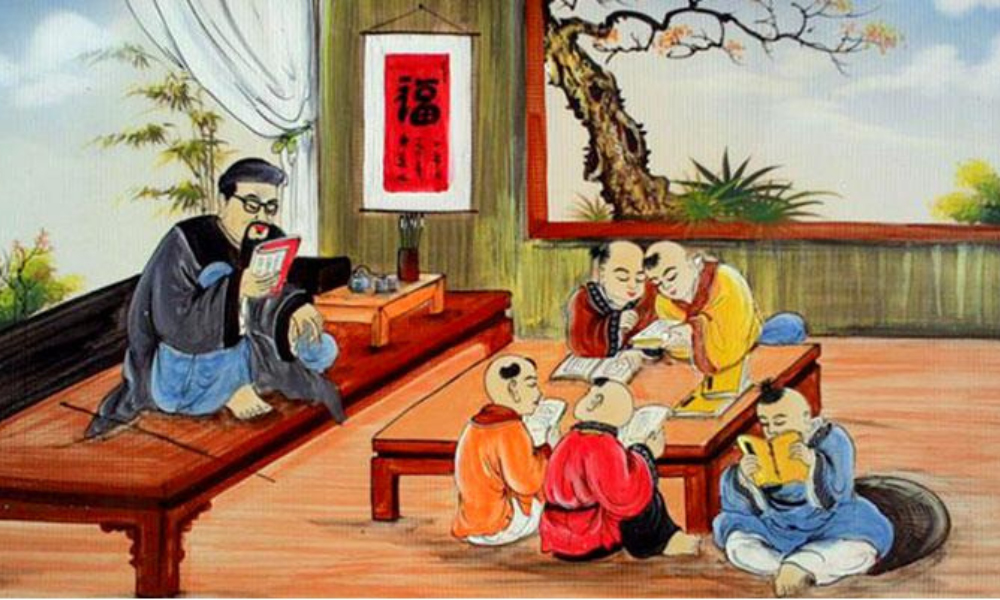
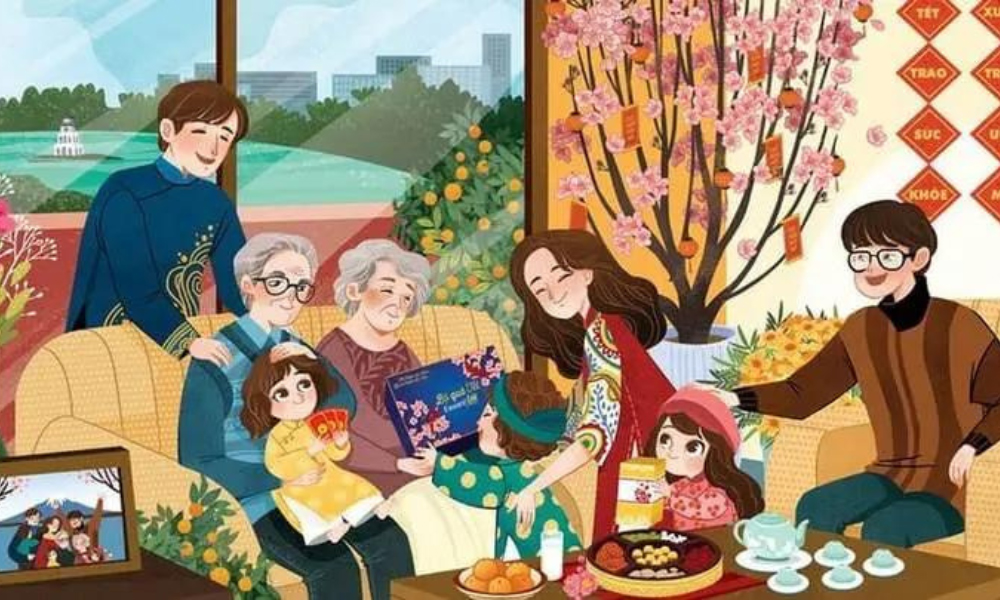
![[Photo] National Conference "100 years of Vietnamese Revolutionary Press accompanying the glorious cause of the Party and the nation"](https://vphoto.vietnam.vn/thumb/1200x675/vietnam/resource/IMAGE/2025/5/30/1cf6cd5c8a934ebfa347028dcb08358c)


![[Photo] General Secretary To Lam receives Chief of the Central Office of the Lao People's Revolutionary Party](https://vphoto.vietnam.vn/thumb/1200x675/vietnam/resource/IMAGE/2025/5/30/140435f4b39d4599a3d17975dfb444c5)
![[Photo] A delegation of 100 journalists from the Vietnam Journalists Association visits the soldiers and people of Truong Sa island district.](https://vphoto.vietnam.vn/thumb/1200x675/vietnam/resource/IMAGE/2025/5/30/0984a986227d4e988177f560d2e1563e)
![[Photo] Journalists moved to tears at the Memorial Service for the soldiers who died in Gac Ma](https://vphoto.vietnam.vn/thumb/1200x675/vietnam/resource/IMAGE/2025/5/30/9454613a55c54c16bf8c0efa51883456)

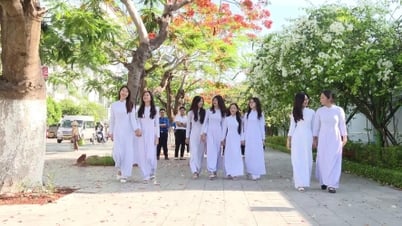
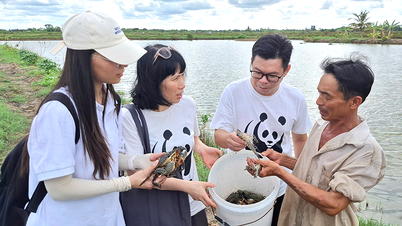

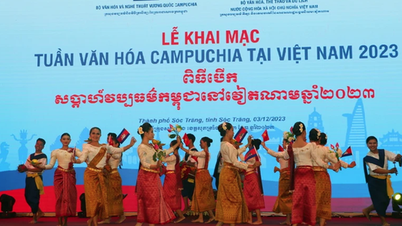
















































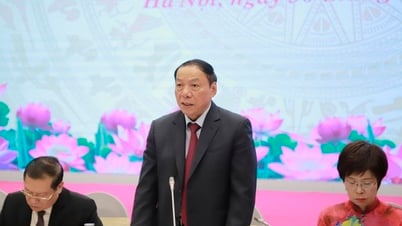




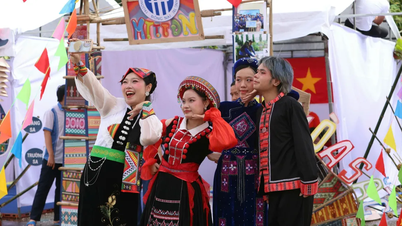




















Comment (0)